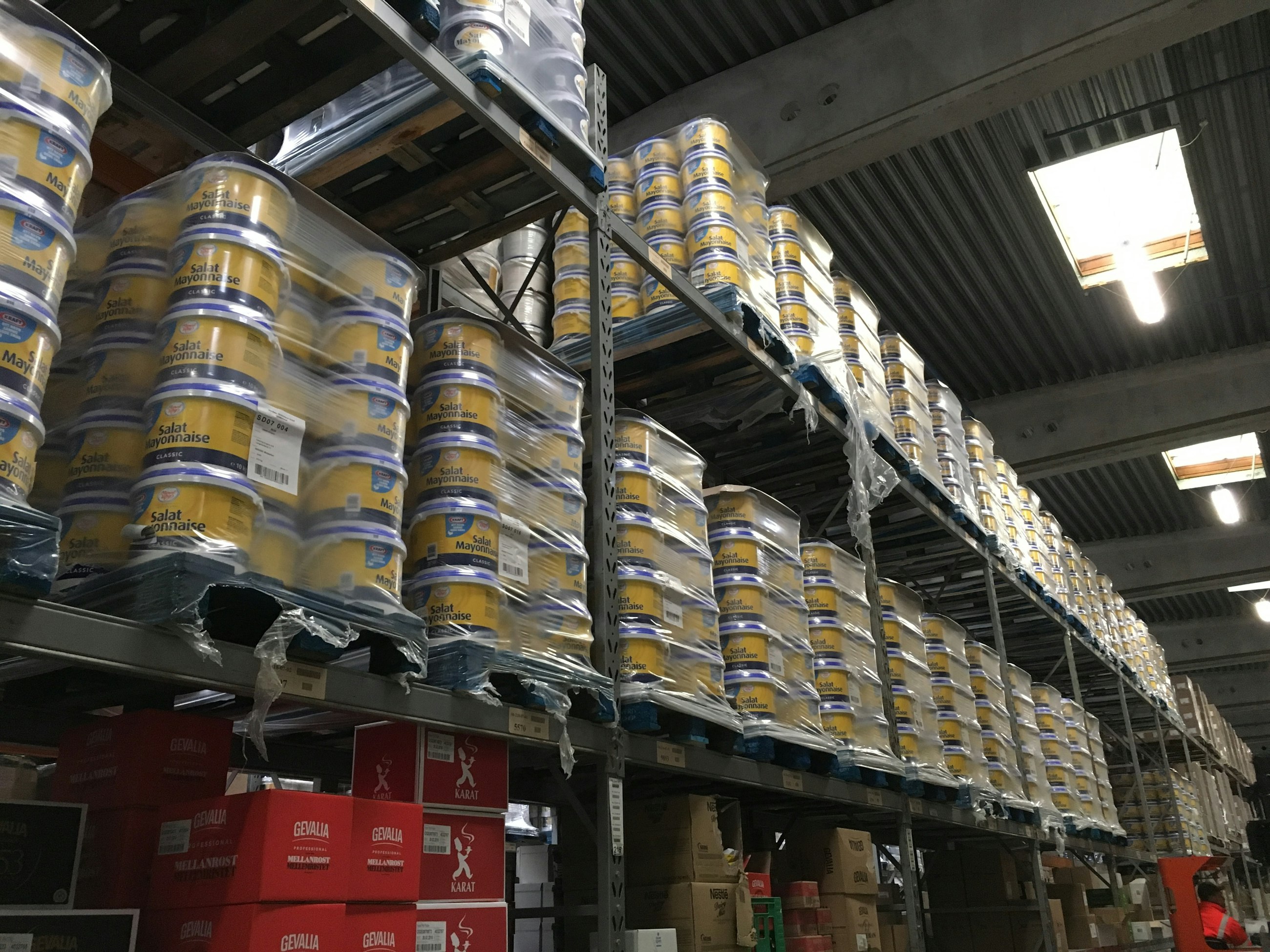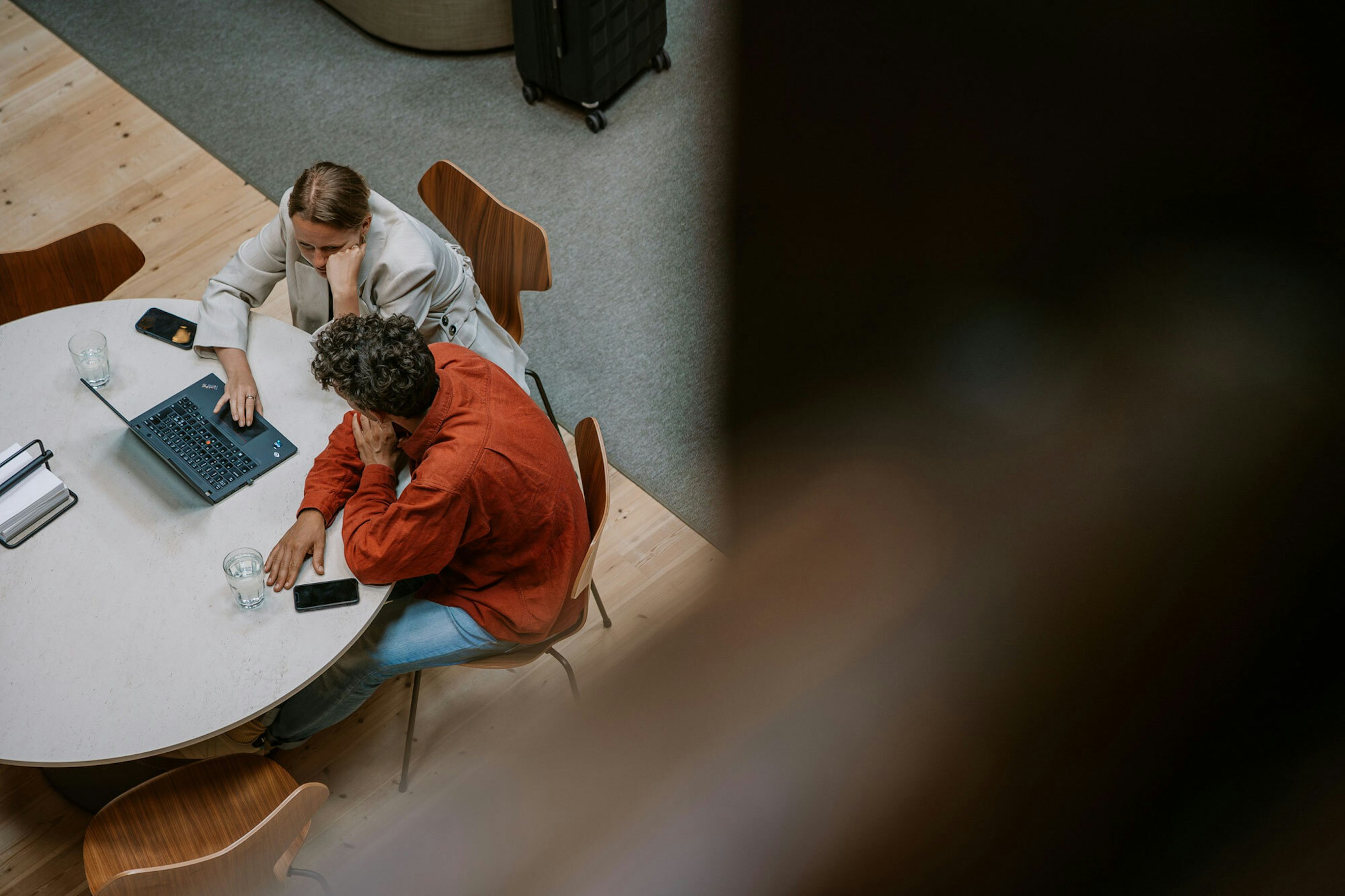Foodservice Danmark and Implement Consulting Group
28 January 2019
FoodService Danmark is one of Denmark's largest food service wholesalers. With a portfolio consisting of wholesale and specialist divisions, their value chain ranges from Sales and Customer Service to Logistics and Distribution. Their competitive edge lies in the wide product range, short lead times and a high level of customer service. This allows the company to serve a broad sweep of professional customers, while adding complexity to operations.
The project – warehouse efficiency
In order to meet customer demands in a more cost-effective manner, FoodService Danmark’s aim was to increase flexibility, robustness and efficiency within its warehouse management. This demanded a complete rethink of the existing warehouse concept, including design and solution implementation. The project, entitled “New Eyes”, focused on eliminating rework and waste in processes and placed a stronger emphasis on first-time-right.
Prior to the launch of the “New Eyes” project, Implement analysed FoodService Danmark’s value chain. The result of this analysis identified significant potential for further efficiency gains at the Catering Engros warehouses in Middelfart. This site was then chosen as the venue for a Half Double pilot project as the terminal had already been working with Lean and wanted to make further improvements.
- The project was divided into three phases with iterations: analysis, impact solution design and pilot. The first part of the analysis included data collection through Gemba, IT systems, reports and interviews. In other words, getting closer to users. From this, it was assessed that the full potential could only be realised by matching capacity to the actual workload, implying a reorganisation of the warehouse organisation.
- In addition to identifying the “right” match between workload and capacity throughout the workday, the impact solution design phase co-created a new warehouse concept, focusing on eliminating rework and process waste. Moreover, a major restructuring of the management organisation had taken place, reducing the number of roles in the warehouse by 50%. The remaining roles were clearly redefined together with the employees in scope in order to reduce the time to impact.
- As part of the pilot phase, the new warehouse concept, including operational management tools, was rolled out throughout the entire warehouse, impacting the routines of approximately 100 employees and managers.
Local translation
In the Half Double methodology, local translation of the three core components – Impact, Flow and Leadership – is essential. This is carried out using nine methods.
Impact
The focus in Half Double is to create a flow of impact throughout the entire project’s lifecycle. FoodService Danmark tailored impact to fit their project through the following methods:
Impact case
The impact case was based on the analysis and co-created with a reference group of users in order to measure the right factors. It consisted of four business and four behavioural KPIs, allowing us to track both business impact and critical underlying behavioural changes. This ensured a constant focus on impact and not just on project deliverables.
Impact solution design
We went through three phases to co-create the impact solution design of the new warehouse:
- The first phase focused on understanding the existing processes and systems and the key drivers for efficiency and quality. Improvement areas were pointed out early due to observations, Gemba and interviews with the warehouse employees as well as managers and staff from other departments.
- The second phase focused on deepening the analysis to gain insight into customers’ ordering patterns. This revealed:
- Rework: Many customers placed several orders in one day, but the orders were handled as they were received.
- Over and understaffing: The number of employees in each shift did not match the actual workload.
- Waste: The warehouse process of refilling empty shelves and picking products was not optimal.
- In a workshop based on the insights, employees from different shifts co-created a new warehouse concept that clearly defined and prioritised standard procedures for each shift.
- The third phase was a pilot test of the central components of the new warehouse concept, where the concept was refined based on the learnings. Also, the management organisation was trained for the roles and skills needed in the new set-up.
Pulse checks
We encouraged constant feedback from stakeholders throughout the project using pulse checks, which were comprised of six standard questions that provided insights and allowed us to take action when necessary. After workshops and meetings, we also conducted mini-pulse checks.
The pulse checks were discussed with the product owner on a biweekly basis, and were followed up on at steering committee meetings, as critical issues were either resolved before or during the meetings.
Flow
Half Double has a clear focus on intensity and frequent interaction in project work. FoodService Danmark tailored flow to fit their project through the following methods:
+ 50% allocation and co-location
The core project team was co-located approximately 70% of the time in a common project room at the Catering Engros site in Middelfart. Close proximity to the client and operations drove fast progression as it allowed the team to just “go and see” in order to clarify their questions. In addition, an open-door policy to the project room increased project trust and encouraged co-creation as employees, managers and stakeholders could drop by any time.
Visual planning
In the project room, FoodService Danmark visualised the project’s progress and drafted solutions. This kept stakeholders updated and involved them in the various project stages and in confirming results. The transparency of the solution design facilitated a co-creating process which further increased project trust and made the solutions more robust.
Project pulse and rhythm
From the start, we set up a fixed rhythm for meetings with key stakeholders to keep them active and informed. This also ensured pace and progression in the project. Biweekly meetings on results and next steps were held with key stakeholders in the impact solution design phase. In the pilot phase, this was adjusted to weekly meetings with individual operations managers solving specific issues.
The project owner attended weekly meetings to actively set the course of the project and discuss the progress made based on pulse checks. We also had biweekly steering committee meetings to create active ownership. This allowed us to change the scope of the project when we realised that the biggest potential was found in restructuring the management organisation and changing the working hours of half of the warehouse employees.
Leadership
Half Double Leadership embraces uncertainty by facilitating a collaborative journey towards a common goal. FoodService Danmark tailored leadership to fit their project through the following methods:
Active project ownership
The project owner and the project sponsor were actively involved in the project. This was especially important in the impact solution design phase, where they immediately understood why the project scope had to be changed. The fixed meeting rhythm and frequent communication allowed everyone to align fast and ensured constant progression.
Collaborative project leadership
All key stakeholders were involved throughout the project, designing the solutions and leading the push towards a new warehouse concept. The fixed rhythm of the meetings as well as the project room with an open-door policy made sure that everyone actively took part in realising impact. The real challenge was motivating everyone to participate in the overall change. Involvement and collaboration were the key to gain buy-in for the new processes.
Reflective and adaptive behaviour
Being confronted with a lack of available project resources along the way, we were unable to gather a project core team with 70% allocation. Instead, the project owner got heavily involved in the project himself and prioritised the operation managers’ involvement in project activities.
Project results
We pilot tested the warehouse concept in order to reduce the time to impact, spur motivation among employees and create management buy-in.
FoodService Danmark streamlined and reduced the number of roles in the warehouse by more than 50%, which reduced complexity and enabled faster decision-making. Operations managers held the leadership responsibility for their employees, allowing for closer employee-manager relationships.
To get feedback on employee satisfaction, FoodService Danmark introduced a weekly survey that enabled operations managers to be closer to their employees and take corrective actions when necessary.
This project saved DKK 7 million annually, increased employee satisfaction by 10% and improved warehouse efficiency by 12%.





